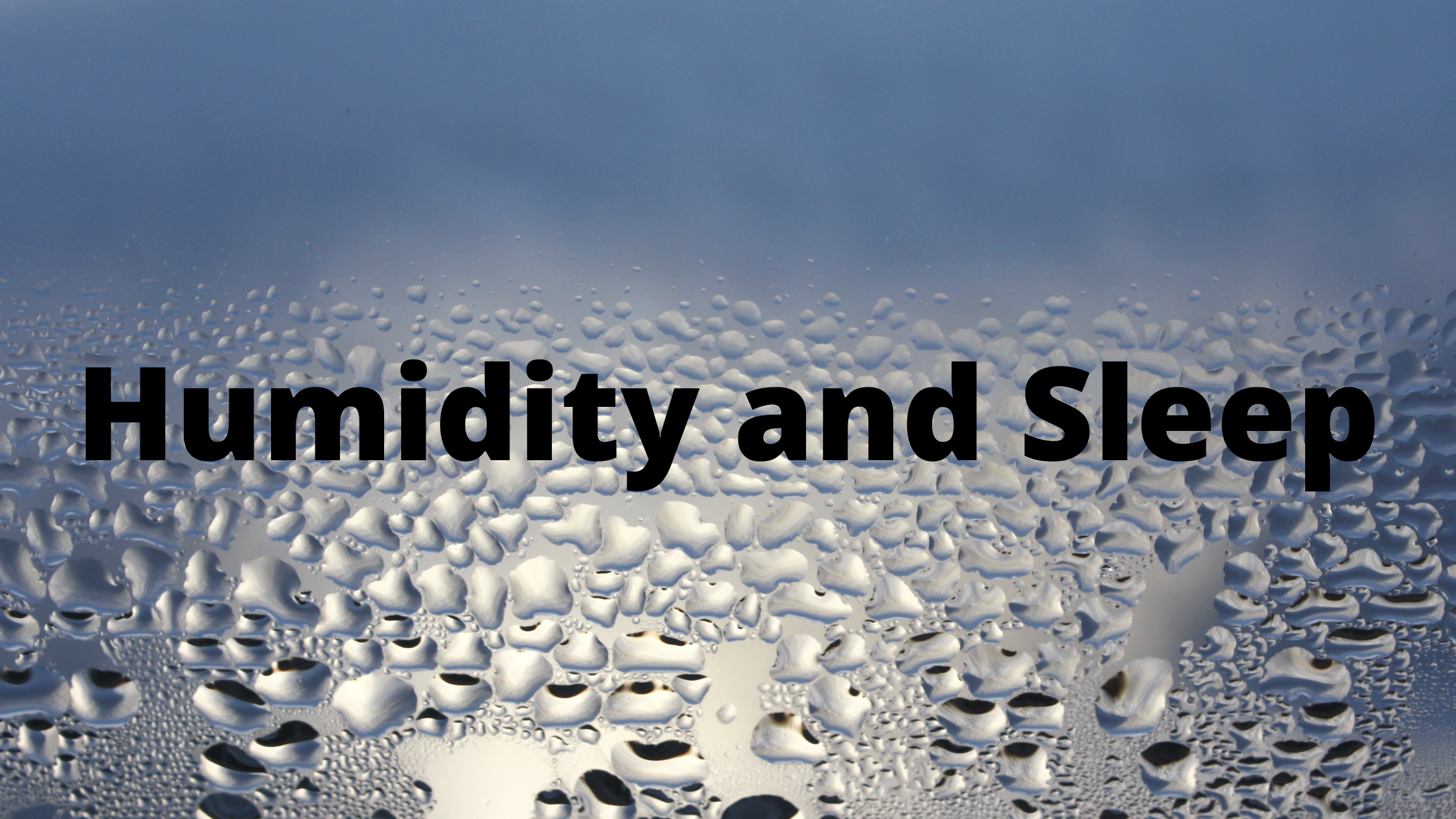
Humidity is the concentration of water vapor in the air. The level of humidity in your home can impact many aspects of your personal health. Studies have found that both high humidity and low humidity can be problematic for various reasons.
Humidity can also impact sleep. High humidity can interfere with your sleep cycle and important processes that occur during crucial sleep stages. Additionally, humid climates are associated with higher concentrations of allergens that trigger adverse reactions and disrupt sleep for some people. Maintaining healthy humidity levels in your home can increase your comfort and quality of sleep.
How humidity affects sleep
In healthy adults, there are four stages of sleep. The first two non-rapid eye movement (NREM) stages are considered light sleep. Your body temperature, heartbeat, breathing rate, and brain wave activity will gradually decrease during these stages. The third stage consists of deep, slow-wave sleep. During this stage, your temperature, heart, and breathing rate all reach their lowest levels. This stage is vital for tissue, bone, and muscle repair and recovery, as well as immunohealth for a strong immune system.
The fourth stage is REM sleep, which is very different from the other three because it's as close to being awake as possible. Your body is still motionless, but your brain wave activity increases, and your eyes move rapidly. Dreaming can also occur during this stage, and this stage is important for memory consolidation.
High humidity can increase wakefulness and reduce the amount of time you spend in both slow-wave NREM and REM sleep. Since both are crucial for overall health, sleepers may have additional issues related to bodily recovery and memory consolidation. This is evidenced by sore muscles, injuries, and chronic pain, as well as memory issues.
Humidity can also impact sleep indirectly. Excessive dampness may aggravate asthma symptoms, leading to bronchitis, respiratory infections, and other breathing problems that can cause sleep disruptions. Allergens that trigger adverse reactions during sleep are another concern. Mold thrives in very damp and humid environments, as do dust mites, small creatures that dwell in mattresses and boxsprings. Humidity also causes some people to sweat excessively, which can make lying in bed very uncomfortable.
Exposure to low humidity levels can cause health problems like dry skin, itchy eyes, and a sore throat. Low humidity has also been linked to respiratory infections.
Best humidity for sleeping
Relative humidity is the ratio of water vapor in the air to the amount of vapor that can exist in the air at any given temperature. Warm air can hold more vapor, so warmer climates tend to feel more humid, and cooler air has a higher relative humidity.
The best relative humidity for sleeping has been debated. The Environmental Protection Agency (EPA) says that relative humidity should never exceed 60% while other studies have different ranges. However 60% seems to be the standard max.
A humidistat can be handy if you have trouble controlling your indoor humidity levels. They are wall-mounted devices that are connected to the HVAC system in your home. Simply set the humidistat to your desired relative humidity percentage, and when this number is exceeded, the HVAC system will automatically turn on and reduce the humidity to the prescribed level.
For maximum comfort, you should also make sure that your room is not too hot. The ideal sleeping temperature is 65 degrees Fahrenheit. This aligns with your body's natural drop in body temperature that occurs during sleep and prevents you from overheating, which can interrupt your sleep.
Bedroom tips for optimal sleeping humidity
In addition to maintaining moderate relative humidity levels and a comfortable temperature in your bedroom, you can take other measures to sleep soundly when it gets hot and sticky.
Find the right speed for your AC unit. A functioning air conditioner really helps when it gets muggy, but you should consider a slow or moderate setting rather than full blast. Studies suggest people tend to sleep better and longer with moderate AC airflow. On the other hand, a strong draft can cause sleep disruptions and increase your heart rate due to its high velocity and colder temperature.
Invest in a dehumidifier, which is a device that reduces indoor humidity. It uses a fan that removes vapor from the air and stores it inside an internal tank. You can opt for different sizes for your bedroom or a whole-house model integrated into your HVAC system, controlled by the humidistat. Clean this filter often so the device can continue working at maximum efficiency.
Moisture-wicking sheets are great for when it is very humid and you start sweating heavily. They are produced from fibers that wick away moisture from the body, like cotton and rayon derived from bamboo. They tend to be more breathable than sheets made from synthetics. The same is true of bedclothes. Attire made from natural and more breathable fabrics will keep you more comfortable.
If feasible, consider replacing your memory foam mattress. They offer several benefits for sleepers, including above-average pressure relief and motion isolation. However, their softer comfort layers can absorb and trap more heat on the surface compared to other mattress types, causing you to feel too warm. Humid weather can exacerbate their discomfort. Other types sleep cooler thanks to more breathable components. The best mattress options for humid conditions include latex mattresses with ventilated layers, moisture-wicking covers, and innersprings and hybrids with open coil systems that promote airflow throughout the mattress core.
All of these tips are designed to promote a more comfortable sleeping environment for quality sleep. If you still have trouble, then there may be a deeper issue at play that needs to be addressed immediately. Our sleep professionals can provide excellent consultations and care. Just click the orange button below to take a free online session and speak with a professional today.
https://www.sleepfoundation.org/bedroom-environment/humidity-and-sleep

